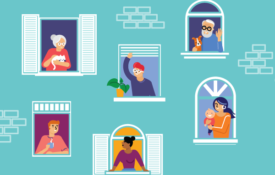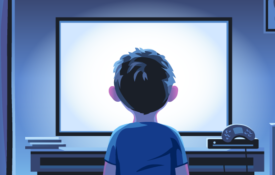-

Beyond Diversity Training: To Change Minds, Change the Environment
Research suggests that taking steps to create more equal social environments may be more effective at reducing prejudice than targeting implicit bias directly.
-

COVID-19 and Its Connection to Human Behavior
Panelists discuss the remarkable resilience of many people in the face of COVID-19 and the challenges that lie ahead if we let our guard down.
-

Violent Video Games and Aggression: The Connection is Dubious, at Best
If you are worried about violent video games triggering aggressive behavior in children, new research may help to alleviate your concerns.
-

Violent Video Games and Aggression: The Connection Is Dubious, at Best
A meta-analysis finds no clear link between video game violence and aggression in children.
-
I Had to Teach My NYU Psych Class to 360 Students From a Cell Phone While Trapped In an Elevator With My Kids. It Went Surprisingly Well.
On September 23, I had to teach my afternoon Introduction to Psychology class today to over 300 students from my cell phone while I was trapped in my apartment building elevator with my two young kids. Even by the standards of 2020, this has to go down as the most stressful — and surreal — teaching experience of my life. I'm currently teaching a huge Intro to Psychology class this fall. But given the risks of the pandemic as well as public health guidelines, I was forced to teach the class virtually.
-
The Trump Administration Says Diversity Training Can Be Harmful. What Does the Research Say?
With an executive order this month, the Trump administration took aim at the anti-racism training that is becoming commonplace at colleges and other workplaces. The directive bars federal departments and agencies, government contractors, and any recipients of federal grants from holding such training for employees.

